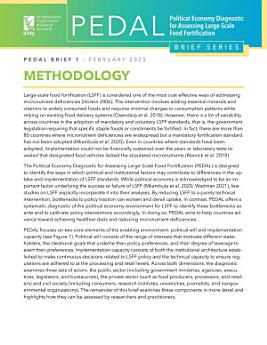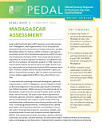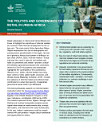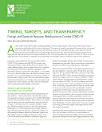Methodology [of the PEDAL project]
Resnick, Danielle
Feb 2025 · Intl Food Policy Res Inst
E-Book
7
Seiten
family_home
Zulässig
info
reportBewertungen und Rezensionen werden nicht geprüft Weitere Informationen
Über dieses E-Book
Large-scale food fortification (LSFF) is considered one of the most cost-effective ways of addressing micronutrient deficiencies. The intervention involves adding essential minerals and vitamins to widely consumed foods and requires minimal changes to consumption patterns while relying on existing food delivery systems. However, there is a lot of variability across countries in the adoption of mandatory and voluntary LSFF standards, that is, the government legislation requiring that specific staple foods or condiments be fortified. In fact, there are more than 80 countries where micronutrient deficiencies are widespread but a mandatory fortification standard has not been adopted. Even in countries where standards have been adopted, implementation could not be financially sustained over the years or laboratory tests revealed that designated food vehicles lacked the stipulated micronutrients. The Political Economy Diagnostic for Assessing Large-Scale Food Fortification (PEDAL) is designed to identify the ways in which political and institutional factors may contribute to differences in the uptake and implementation of LSFF standards. While political economy is acknowledged to be an important factor underlying the success or failure of LSFF, few studies on LSFF explicitly incorporate it into their analyses. By reducing LSFF to a purely technical intervention, bottlenecks to policy traction can worsen and derail uptake. In contrast, PEDAL offers a systematic diagnostic of the political economy environment for LSFF to identify these bottlenecks ex ante and to calibrate policy interventions accordingly. In doing so, PEDAL aims to help countries advance toward achieving healthier diets and reducing micronutrient deficiencies. PEDAL focuses on two core elements of the enabling environment: political will and implementation capacity (see Figure 1). Political will consists of the range of interests that motivate different stakeholders, the ideational goals that underlie their policy preferences, and their degree of leverage to exert their preferences. Implementation capacity consists of both the institutional architecture established to make continuous decisions related to LSFF policy and the technical capacity to ensure regulations are adhered to at the processing and retail levels. Across both dimensions, the diagnostic examines three sets of actors: the public sector (including government ministries, agencies, executives, legislators, and bureaucrats), the private sector (such as food producers, processors, and retailers) and civil society (including consumers, research institutes, universities, journalists, and nongovernmental organizations). The remainder of this brief examines these components in more detail and highlights how they can be assessed by researchers and practitioners.
Dieses E-Book bewerten
Deine Meinung ist gefragt!
Informationen zum Lesen
Smartphones und Tablets
Nachdem du die Google Play Bücher App für Android und iPad/iPhone installiert hast, wird diese automatisch mit deinem Konto synchronisiert, sodass du auch unterwegs online und offline lesen kannst.
Laptops und Computer
Im Webbrowser auf deinem Computer kannst du dir Hörbucher anhören, die du bei Google Play gekauft hast.
E-Reader und andere Geräte
Wenn du Bücher auf E-Ink-Geräten lesen möchtest, beispielsweise auf einem Kobo eReader, lade eine Datei herunter und übertrage sie auf dein Gerät. Eine ausführliche Anleitung zum Übertragen der Dateien auf unterstützte E-Reader findest du in der Hilfe.




